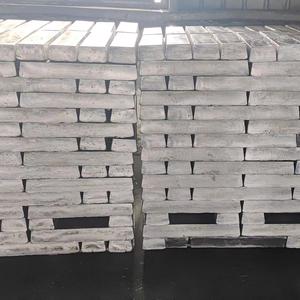Magnesium Ingots are a highly pure form of magnesium metal known for its unique properties and wide range of applications. In addition to its widespread use in manufacturing, magnesium ingots also play a key role in many other areas. In this article, we’ll explore the uses of magnesium ingots to reveal the many applications for this lightweight metal.

1. Aerospace industry
Magnesium ingots play an important role in the aerospace industry. Due to their lightness and high strength, magnesium alloys are widely used to manufacture structures and components of spacecraft such as aircraft, missiles and satellites. In addition, the thermal conductivity of magnesium alloys makes it an ideal material in aircraft engines and cooling systems. These properties make magnesium ingots an integral part of aerospace engineering, helping to reduce the weight of spacecraft and improve fuel efficiency.
2. Automobile industry
In the automotive industry, magnesium ingots are also widely used. Magnesium alloys are commonly used to manufacture automobile parts, such as engine blocks, transmission housings, steering gear housings, etc. These parts are made from magnesium alloy, which not only reduces the overall weight of the car but also improves fuel efficiency. In addition, magnesium ingots are also used to manufacture car interiors, such as steering wheels, seat structures, etc., making cars lighter and more environmentally friendly.
3. Electronics industry
The electronics industry is also one of the main uses of magnesium ingots. Due to its excellent electrical conductivity, magnesium is often used in battery manufacturing and casings for electronic devices. The magnesium alloy in the battery provides high electrical conductivity, making the battery more efficient, while the magnesium alloy casing protects the electronic device from the external environment.
4. Medical devices
In the field of medical devices, magnesium tablets also play a key role. Magnesium alloys are often used to manufacture orthopedic implants, such as bone nails, bone plates and artificial joints. Due to their biocompatibility and strength, magnesium alloys can provide long-term reliability and durability in medical devices. This is critical for fracture repair and joint replacement surgeries.
5. Environmental protection field
In the environmental field, magnesium ingots' lightness and corrosion resistance make them an ideal material for solar and wind energy equipment. It could be used to make solar cell racks, wind turbine blades and other key components for renewable energy equipment. This helps drive the development of clean energy and reduces dependence on fossil fuels.
In short, magnesium ingot, as a multifunctional material, has a wide range of applications in many fields. Its lightness, high strength, thermal conductivity and corrosion resistance make it one of the indispensable materials in many industrial and scientific fields. As technology continues to advance, we can foresee magnesium ingots playing a key role in more areas, contributing to innovation and sustainability. The diverse range of applications for this lightweight metal is constantly expanding, offering endless possibilities for the future.